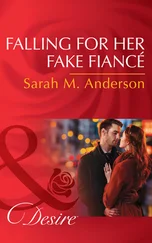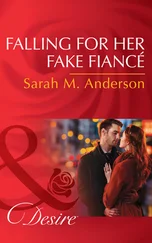“Cantrip,” said Ragwort, “have you noticed the time?”
“Crumbs,” said Cantrip. “All right, I’ll race you — last one in court’s a sissy.”
Their departure left the best part of a bottle of excellent claret to be shared among three of us, none of whom that afternoon had any such pressing obligation; the circumstances should have been propitious to convivial relaxation. Cantrip’s final remarks, however, seemed somehow to have cast a kind of shadow over the afternoon: nothing so definite as to be called a suspicion, but rather an uneasy sense of ambiguity. Though well aware of the matters of which Cantrip had reminded us, we had none of us, I think, considered consciously until then how profitable the sequence of events had proved to be to the attractive young craftsman. We seemed, without speaking of the subject, to reach an understanding not to do so; but our conversation became desultory, as if each of us were thinking of something other than what we talked of.
“Julia,” said Selena, when the wine was finally disposed of, “if either of us is going to get any work at all done this afternoon, isn’t it time we thought of getting back to Chambers?”
Julia conceded that it was.
“I’ll walk back with you,” I said. “There’s something I should like to ask Terry.”
Terry, however, was no longer working diligently on preparations for the bookshelves. There had been a telephone call (said Selena’s Clerk Henry) from Miss Larwood’s aunt, who seemed to know that Terry was likely to be found at 62 New Square. She had asked to speak to him and said that it was urgent. Not being in the habit (said Henry) of listening in to other people’s telephone conversations, Henry did not know what they had said to each other. He only knew that Terry had left immediately afterwards, saying that he would not be back that day. Henry had not asked him where he was going, which was none of Henry’s business; but he had seemed to be in a hurry.
I felt as if the room had turned suddenly cold. I could imagine no subject upon which Regina could have wished to speak urgently to the young craftsman save in connection with Daphne’s death. Had she remembered something about it which she found perplexing or significant? Something perhaps which she felt that she should include in her evidence at the inquest? And why, if so, had it been to Terry that she had felt she ought to mention it? Was it something that she thought, as a matter of fairness, she should offer him a chance to explain? And for what purpose, when she had done so, had he left in such haste?
From the anxious exchange of glances between Julia and Selena, I perceived that I was not alone in my disquiet.
“Hilary,” said Julia, “what was it you wanted to ask him?”
“I wanted to ask him,” I said, “when exactly he visited Isabella. I rather think that it may have been on the night she died.”
“Henry,” said Selena, “Miss Larwood and I are going to Sussex. Perhaps you would be kind enough to tell Miss Larwood’s Clerk.”
From central London, in the middle of a Friday afternoon, not even Selena, for all the dexterity and insouciance of her driving, could make a rapid departure. I had ample time, as her Ford Escort edged its way along the Strand behind a convoy of double-decker buses, to explain why I now believed that it was Terry who had visited Isabella on the night of her death.
“When he told us of his visit to her, I assumed, I confess too readily, that it had taken place some weeks, if not months, before she died. Upon more careful reflection, I realise that he did not in fact say that. He did say, on the other hand, that on the evening of his visit, Daphne was sent out of the house.”
“Yes,” said Julia. “I remember him saying that.”
“We know, however, that when that happened it was usually because of a visit from the man in the black Mercedes — that is to say, as we have now established, Sir Robert Renfrew. The only occasion that we know of on which Daphne’s exile to the Newt and Ninepence cannot have been on account of a visit from Sir Robert was on the evening of Isabella’s death.”
We joined the slow-moving stream of traffic crossing Blackfriars Bridge.
“Even if that was the evening that Terry went to see her,” said Julia, drawing deeply on a Gauloise, “it doesn’t follow that there was any causal connection between the two events. She may still have died, as you suggested earlier, of an accidental overdose of cough medicine. Or even of natural causes.”
I agreed that it was not impossible.
“And if Terry was her visitor,” continued Julia, with renascent optimism, “then there’s nothing in the least sinister about him washing up the glasses. A nicely brought-up young man who’d been having drinks with an elderly relative — it would be the most natural thing in the world.”
“No doubt you are right,” I said. “There is nothing at all sinister about the situation. Except that Isabella and Daphne are both now dead and Terry will in consequence inherit a property worth three or four hundred thousand pounds.”
We had now for some minutes remained stationary in the Elephant and Castle, where someone had for some reason decided to dig up the road: little of Selena’s attention was required for her driving.
“Of course,” said Selena thoughtfully, “Terry could have inherited without Daphne dying. Under the terms of Isabella’s will, she’d have forfeited her interest in the estate if she’d simply stopped living at the Rectory. … I suppose the first idea one would have in those circumstances, if one happened to be the residuary beneficiary, would be to try and frighten her away. Let’s say, for example, by burgling the house or throwing stones through the window.”
“Terry didn’t know the terms of the will until after Isabella died,” said Julia.
“He says he didn’t,” said Selena.
Julia made no direct answer, but enquired if it might not be quicker to take the train. Selena, having considered this, thought that it would not.
“It’s five miles to Parsons Haver from the nearest mainline station and it might take ages to get a taxi. Don’t worry, it won’t take long once we’re out of London.”
London, however, seemed endless, spreading southwards from the Thames in an almost infinite succession of suburbs, some affluent, some dilapidated, some quietly genteel, some noisily bohemian, but all filled with a sluggish stream of motor vehicles, moving with the utmost slowness in the direction of the coast.
My thoughts grew increasingly confused. At times I was convinced that the case against Terry was overwhelming and Regina in the gravest danger; at times that the evidence against him was merely circumstantial and there was no reason at all for the urgency of our journey.
I remembered, with relief, that he had no motive at all for doing any harm to Sir Robert; but then with anxiety that he was in Cannes at the time the poisoning had taken place and indeed an habitué of the restaurant where it had occurred.
Brixton seemed gradually to become Streatham, but with no perceptible diminution in the stream of traffic.
I recalled that he had been far from Parsons Haver at the moment when the Reverend Maurice was taken ill during the Christmas service; but if the clergyman’s illness had been due to natural causes, Terry had been at his bedside the following night when the illness had been fatal.
Streatham at last became Croydon.
I knew of no specific occasion when he would have had the opportunity to administer poison to Daphne; but the contrivance of such an occasion was not beyond human ingenuity, and he was the only person to profit by her death.
Croydon with the utmost reluctance became Coulsdon.
By the time we reached open country and roads on which Selena could drive at a speed she considered reasonable the sun was already low in the western sky. Long before we completed our journey, the voluptuous curves of the Sussex countryside were hidden in darkness. Had it not been for the reduction of our speed to one more suited to a village high street, I would scarcely have realised that we had reached our destination.
Читать дальше












